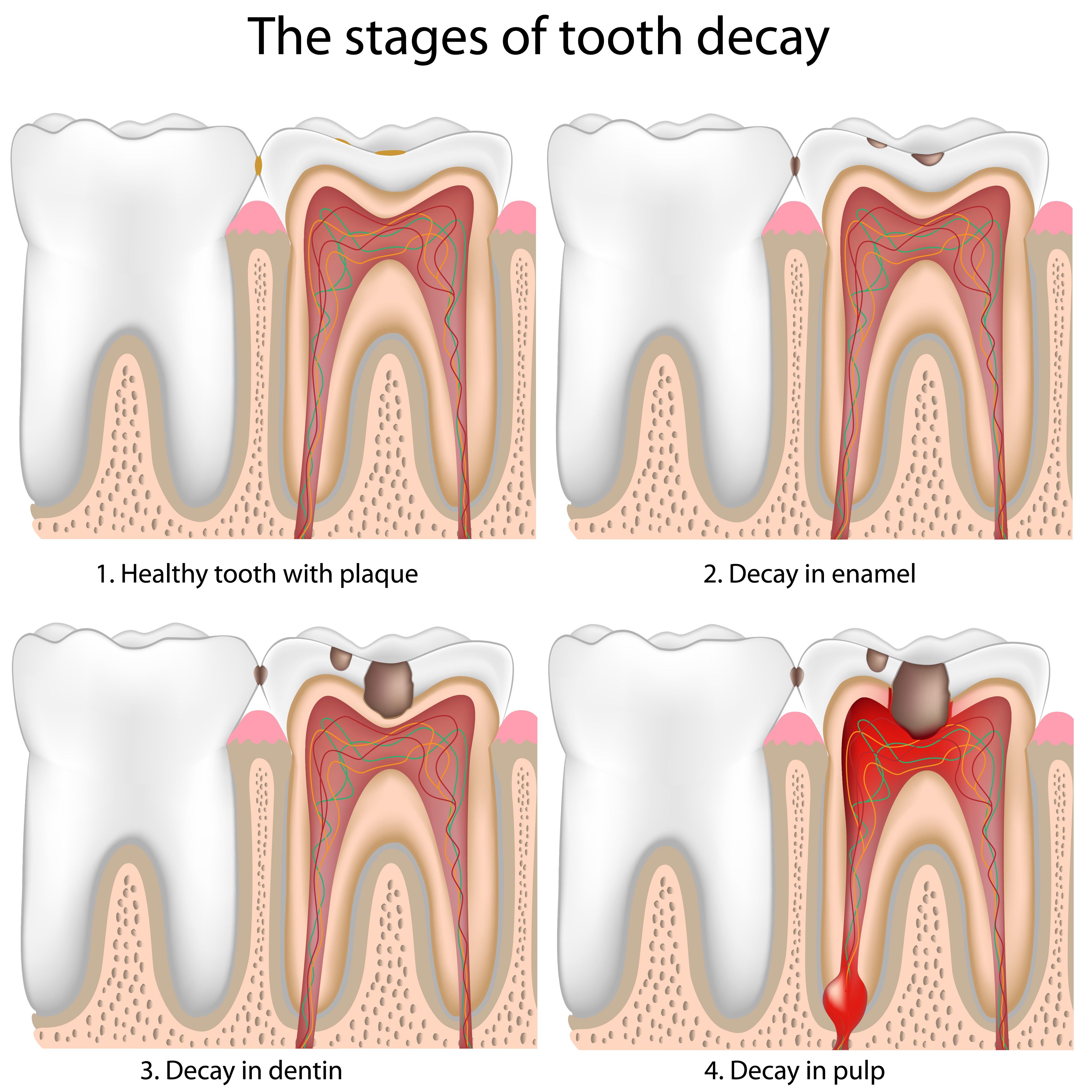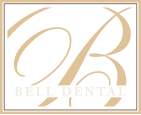The Five Stages of Tooth Decay
 At Bell Dental, we strive to provide our patients with a comprehensive range of dental services, from state-of-the-art cosmetic dentistry to restorative dentistry of the most surpassing standard. We also give our patients all of the information they need to take the best care possible of their teeth and gums in between their regular visits to our practice. We want them to be able to maintain outstanding oral health so that their appointments at Bell Dental can be devoted to preventive care designed to keep such issues as tooth decay at bay.
At Bell Dental, we strive to provide our patients with a comprehensive range of dental services, from state-of-the-art cosmetic dentistry to restorative dentistry of the most surpassing standard. We also give our patients all of the information they need to take the best care possible of their teeth and gums in between their regular visits to our practice. We want them to be able to maintain outstanding oral health so that their appointments at Bell Dental can be devoted to preventive care designed to keep such issues as tooth decay at bay.
One of the best ways to prevent tooth decay is to know how to identify the condition in its earliest stages, when it is easiest to treat. This is why Dr. Brian K. Bell educates his patients about the stages of tooth decay at his Lake Jackson, TX cosmetic, restorative, and general dentistry practice. He encourages his patients to seek diagnosis of and treatment for tooth decay at the first indication that it may be developing. That way, full health, form, and function can be restored to the tooth before it has a chance to be compromised to any significant degree.
Don’t take chances with your precious oral health. Entrust your teeth to a skilled dentist who truly cares about your well-being. Schedule your initial consultation with Dr. Brian K. Bell at Bell Dental today.
What Are the Stages of Tooth Decay?
Tooth decay occurs in five stages. In the earliest of these stages, symptoms can be extremely subtle, which is why it is important to visit our practice at least twice a year for thorough oral exams and professional cleanings. Dr. Bell is able to diagnose tooth decay even before it produces obvious symptoms and treat it before it does irreparable damage to the teeth.
The five stages of tooth decay are:
- Demineralization: During this first stage, a small part of the tooth enamel will become demineralized, which may take the form of a white or brown spot. If tooth decay is diagnosed at this point, remineralization may be able to reverse any damage done.
- Enamel wear: During this stage, bacteria eats away at the enamel of the teeth, exposing the delicate underlying layer of dentin underneath. Dentin contains passages to thousands of microscopic tubules which lead to the nerve centers of the tooth. The tooth can still be treated quite effectively at this stage with tooth-colored fillings, inlays, onlays, or crowns, depending on the extent of the decay.
- Damage to the dentin: Once bacteria start eroding the dentin, decay will accelerate. At this point, it may still be possible to treat the tooth with a filling, inlay, onlay, or crown, but the clock is ticking.
- Root canal infection: Eventually the decay will penetrate the center of the tooth, which contains between one and four root canals. Inside each root canal is a nerve-rich substance called dental pulp, which is essential to the health of the tooth. When this pulp becomes infected or inflamed, it must be surgically removed in order to salvage the tooth. The root canal must then be disinfected, and the tooth must be covered with a dental crown.
- Abscess formation: The final stage of tooth decay, abscess formation, occurs if root canal surgery is not performed in a timely manner and the infection has the opportunity to spread to the tip of the tooth root. From there, it can move to the jawbone, the gums, and adjacent teeth, and an abscess can form at the base of tooth. At this point, there is a chance that root canal therapy can still successfully be performed. However, extraction becomes increasingly likely with each day that passes. If no action is taken, the tooth will eventually die.
Learn More about the Stages of Tooth Decay
To learn more about the stages of tooth decay, please contact Bell Dental today.




